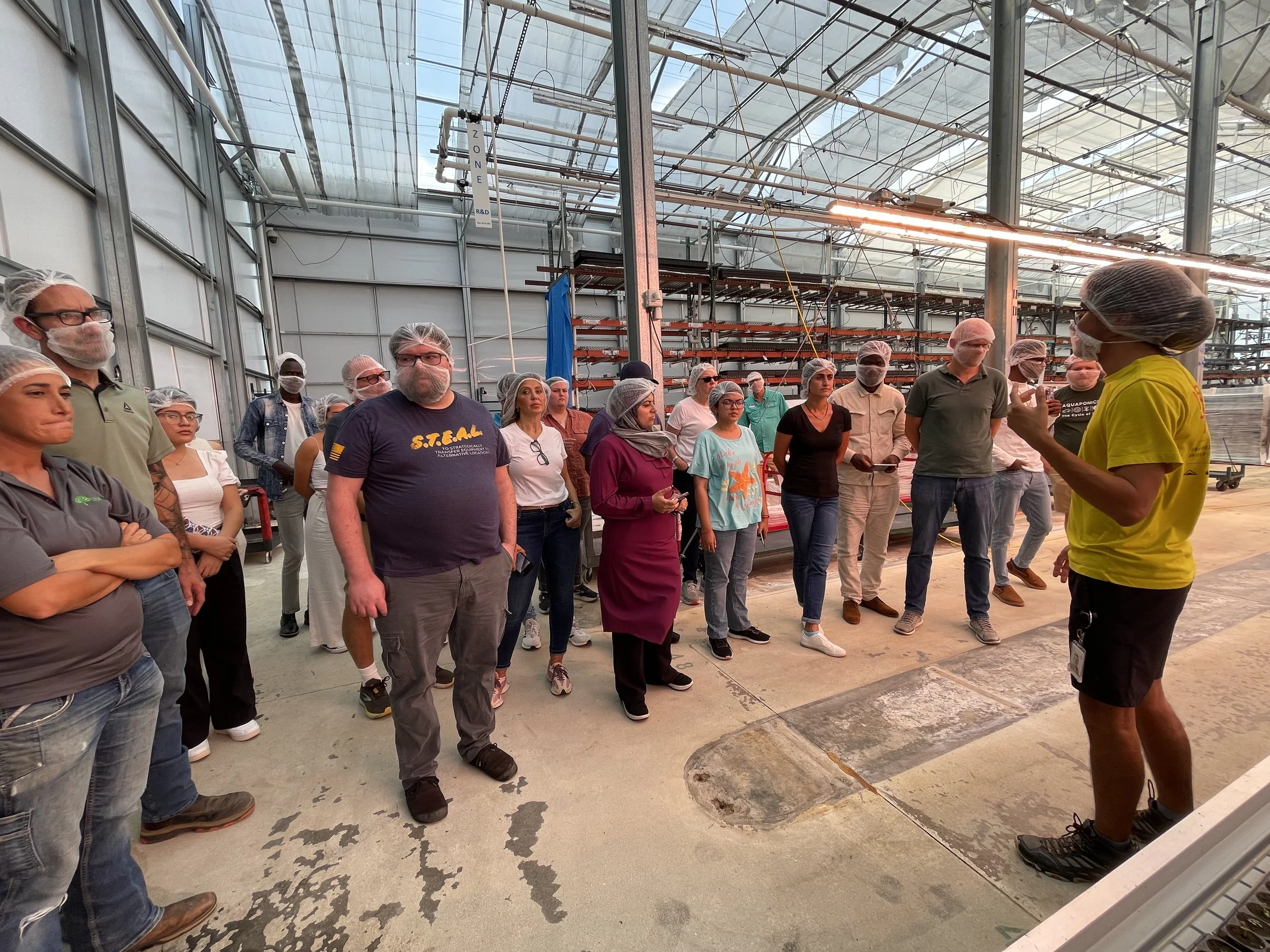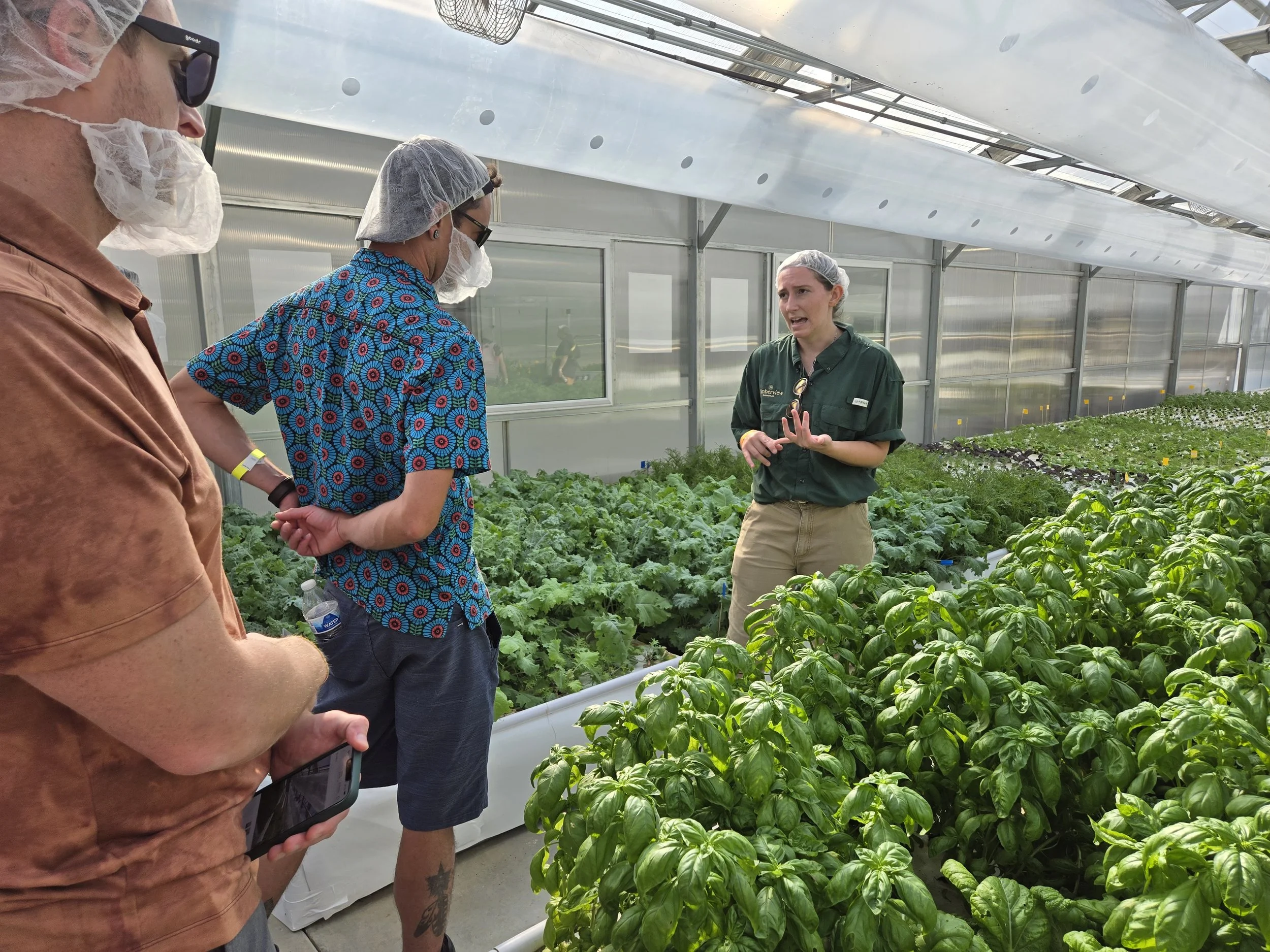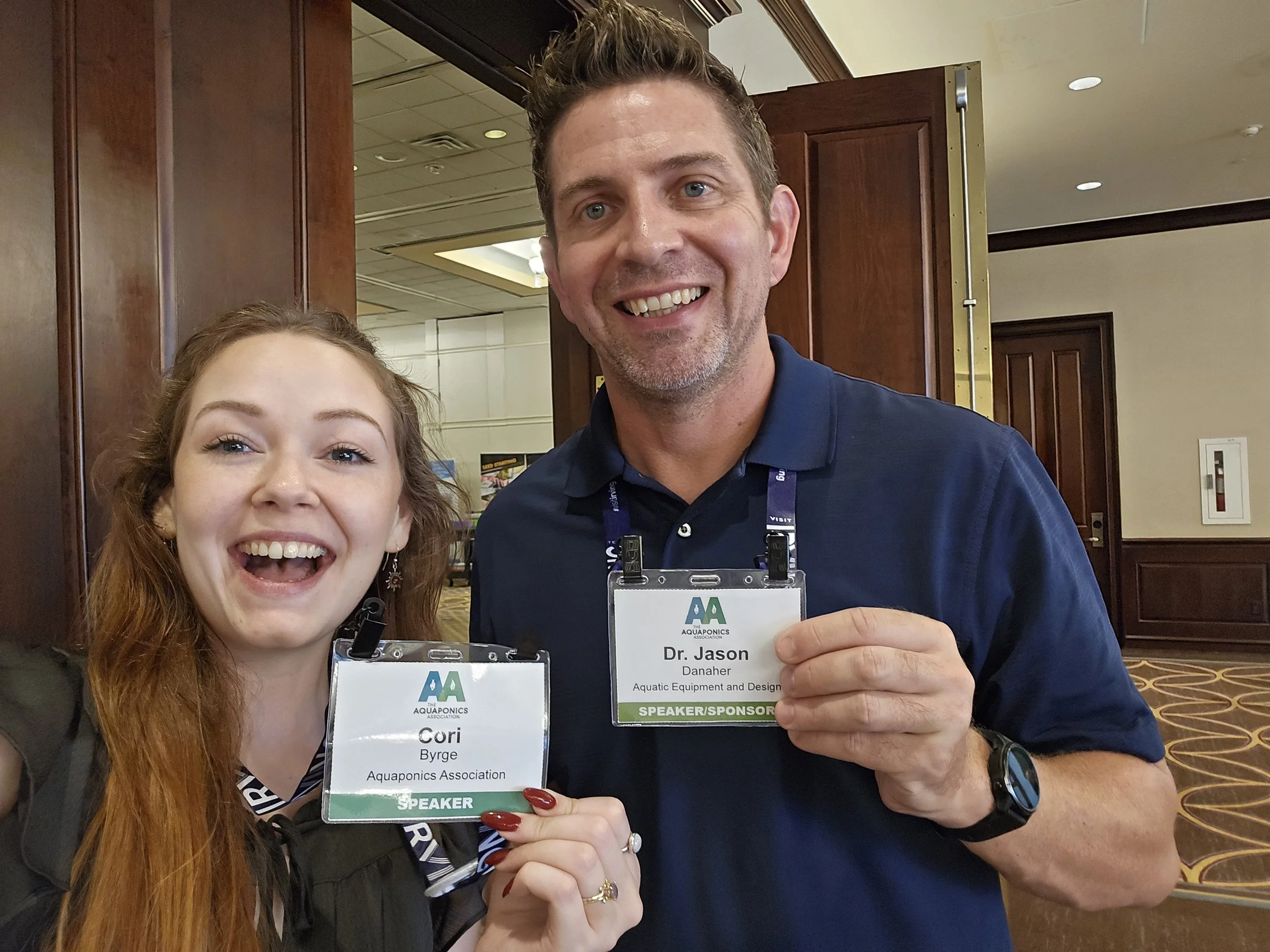Generating IDEAS at The 13th Annual Aquaponics Conference
In 2024, we had set our sights on acquiring grant funding through the USDA to enhance our 13th annual conference in Dallas, TX (09/12-09/15). We were fortunate enough to identify and successfully acquire grant funding through the USDA National Institute of Food and Agriculture (NIFA) Foundational and Applied Science Program (Program Link). Specifically, funding came from the crosscutting program area: Inter-Disciplinary Engagement in Animal Sciences (IDEAS) - Award #2024-05281.
The purpose of the funding was to create solutions, aligned with the IDEAS program, to historical challenges our organization has faced hosting this conference. This funding allowed us to create several initiatives, host special sessions aligned with the IDEAS program (environmental synergies of animal production, automation/precision agriculture, urban production), and invite underrepresented groups (Native-American, students, etc.) to enhance the content delivered during this event as well as expand the interdisciplinary community attending this event. These accomplishments are outlined below:
1) Significant cost savings for attendees of 13th Annual Aquaponics Conference
A total of $20,410 was saved for targeted audiences (nonprofits, students, urban producers, underserved communities, etc.) attending the conference due to the conference grant. Overall, full funding (travel, lodging, and tickets) accounted for 75% of the total amount saved ($15,582). This full funding was provided to the following:
(3) individuals from nonprofits (2 urban; 1 rural) that currently are/are interested in utilizing aquaponics to better serve their communities;
(2) individuals from Tribal Nations (Seminole, Muscogee) that are utilizing aquaponics to feed their tribes;
(2) individuals from for-profit businesses involved in automation or innovative technology integration into aquaponics; and
(1) student from a university (Texas State University) involved in research with aquaponics.
Partial funding (discounted to fully covered ticket) accounted for the remaining 25% ($4,828) discounts that were distributed to targeted conference attendees, which included:
(9) individuals from nonprofits operating around the country involved in aquaponics (7 urban; 2 rural);
(6) individuals that were classified as underserved producers (Native American, African American; Veterans; Disabled);
(4) individuals from universities or for-profit entities integrating technologies (automation, waste digestion, monitoring/sensors) into aquaponic system design;
(8) students from various universities involved in aquaponics;
(5) individuals that traveled internationally who utilize aquaponics in their countries for various purposes;
This partial funding was able to be allocated to individuals directly due to the funding from the grant which enabled our organization to cover historical costs associated with the transportation for the annual local aquaponic farm tour integrated into both the pre- and regular- conference program as well as covering costs for the labor associated with advertising and hosting the conference.
2) Increased knowledge and skills by attendees from pre-conference workshop, conference sessions, presentations, and tours hosted during the 13th Annual Aquaponics Conference
Over the course of the conference a total of (63) presentations, (5) special sessions, and (8) hours of networking led to significant knowledge and networking exposure for attendees. The conference presentations included a keynote session from researchers and leaders at Auburn University, providing an inspiring data driven perspective on aquaponic projects at their institution. The remaining presentations consisted of five topic tracks: Education, Nonprofit/Community, Commercial Growing, Alternative Growing, and Research. This allowed for attendees to consume information from a variety of perspectives as they moved around the conference venue. The special sessions included topic areas on: Ask-The-Expert, Navigating USDA Grants Panel, Empowering Communities with Aquaponics, Innovations in Design, Processes, and Production, as well as Purdue Universities Blue is Green USDA Grant Initiative. In addition to the presentations, there was ample opportunity for attendees to network during the breakfasts, banquet dinner, farewell luncheon, tours, and exhibitor happy hours each night.
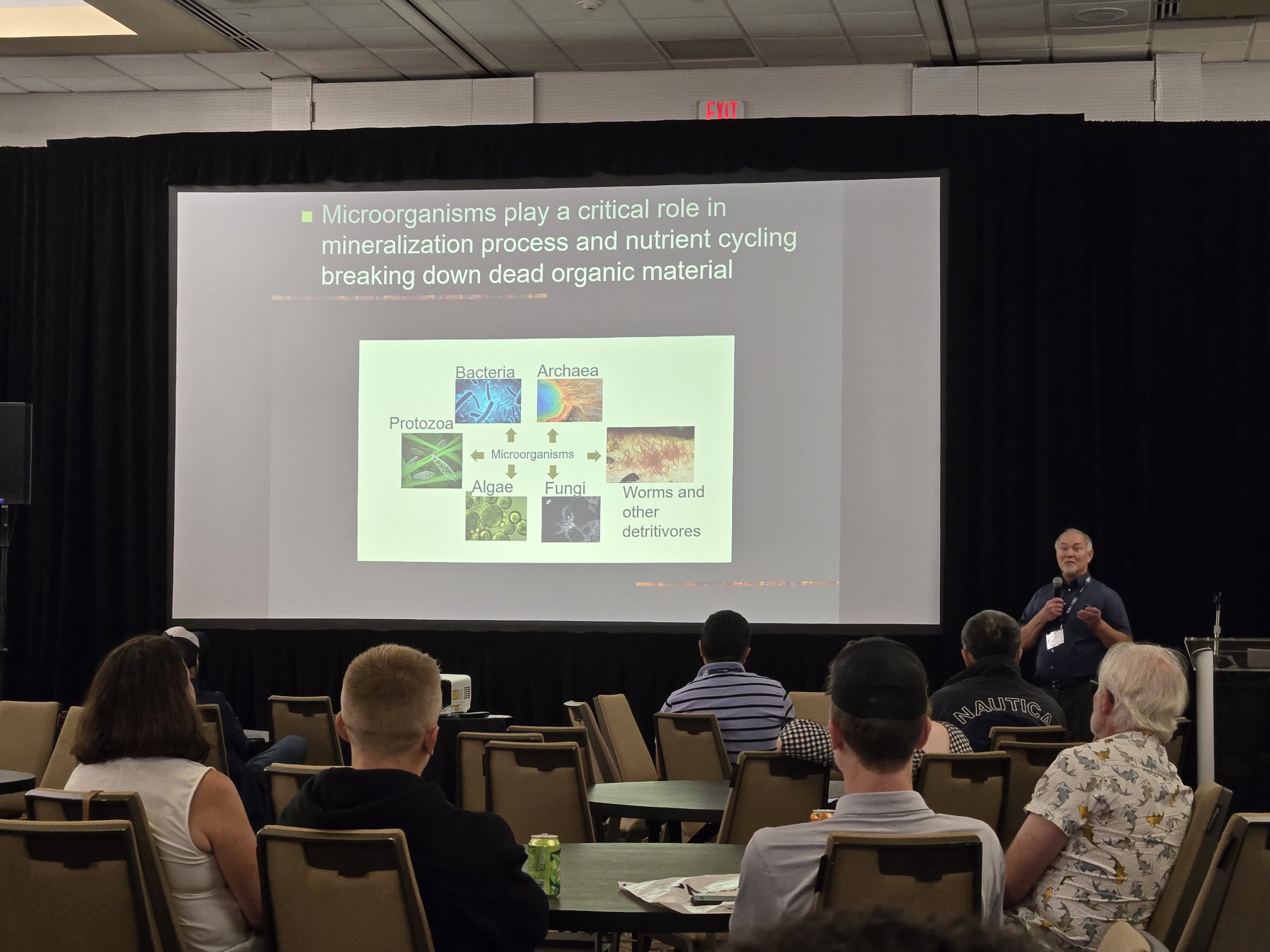
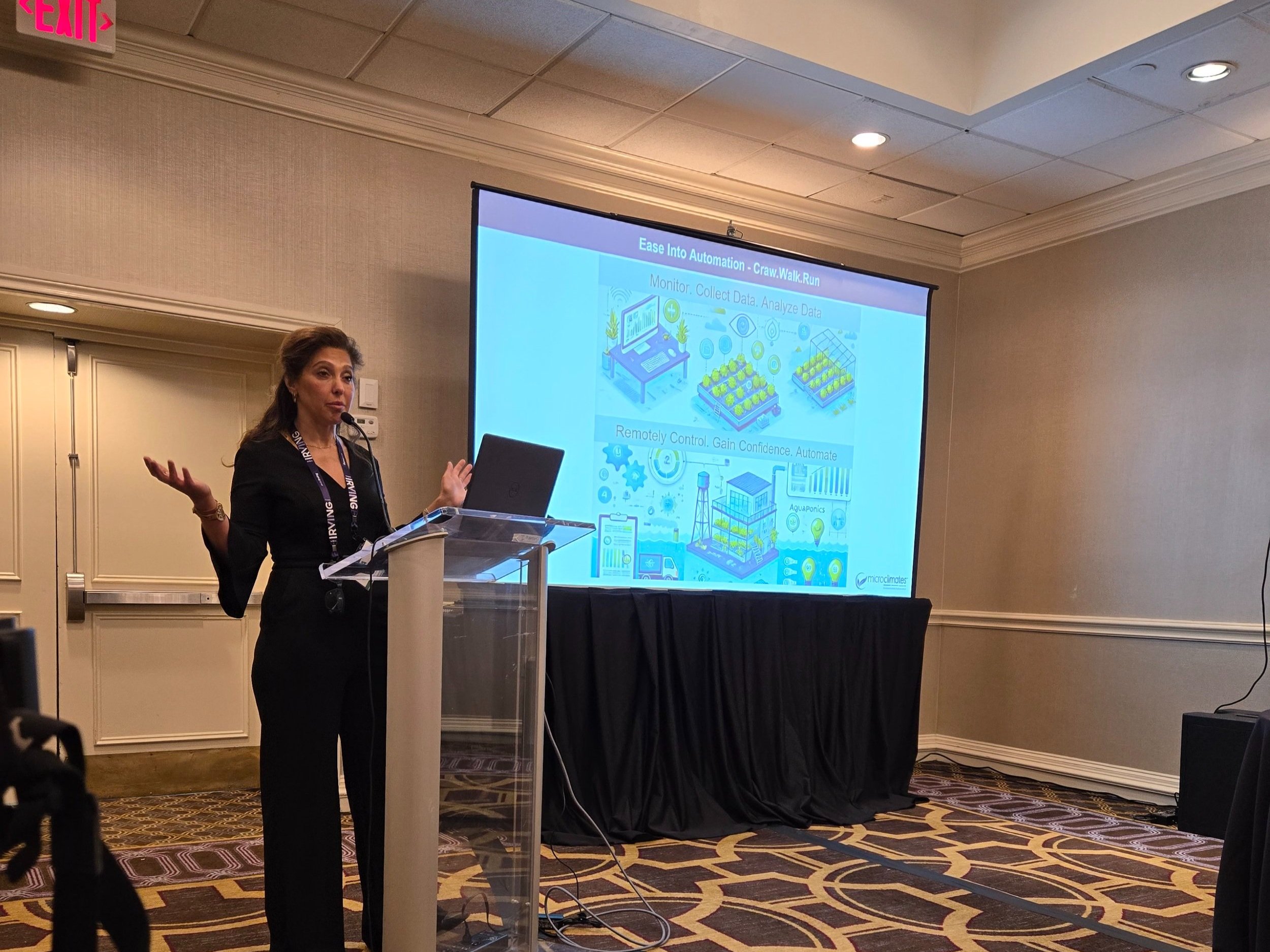
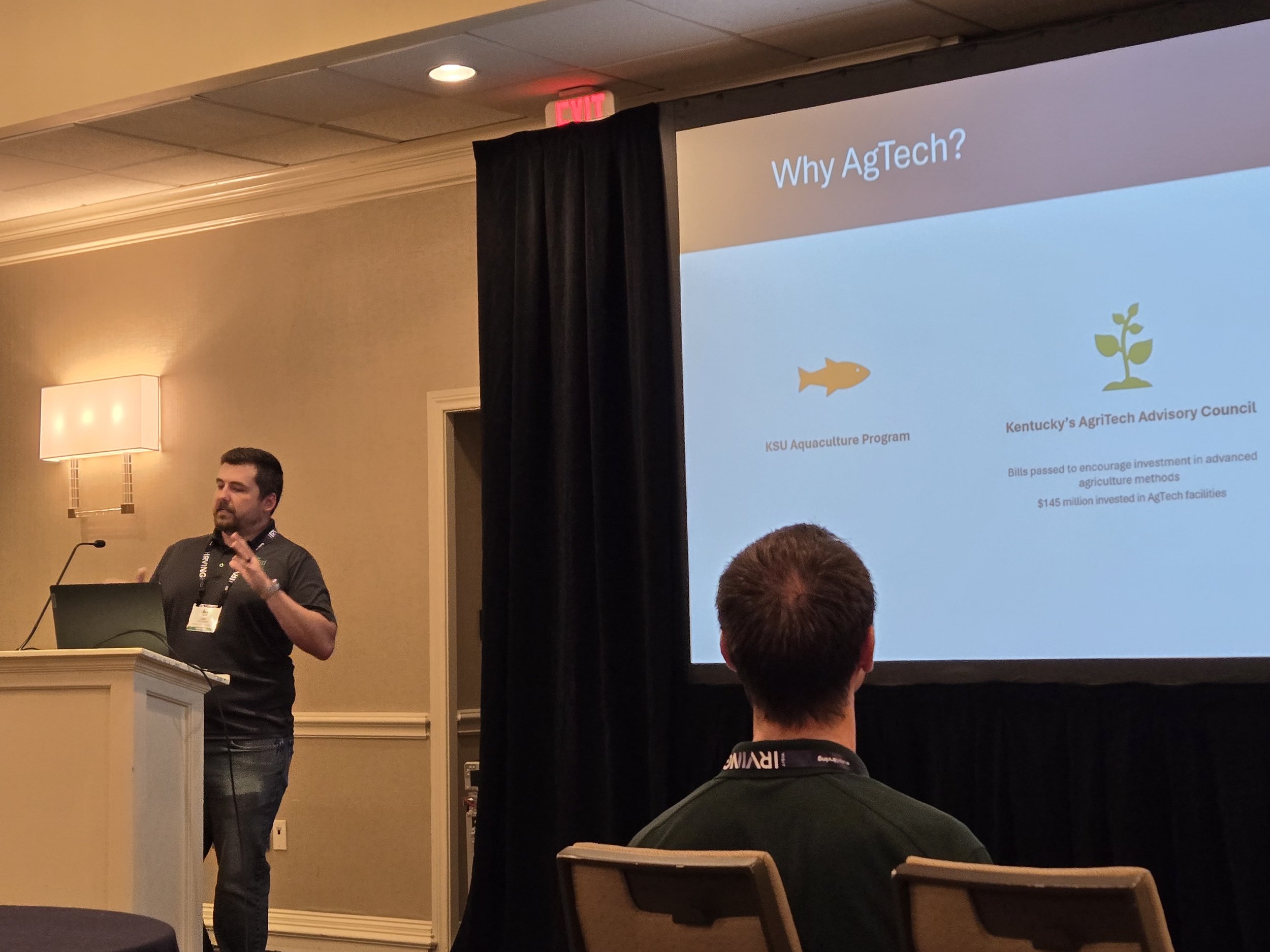
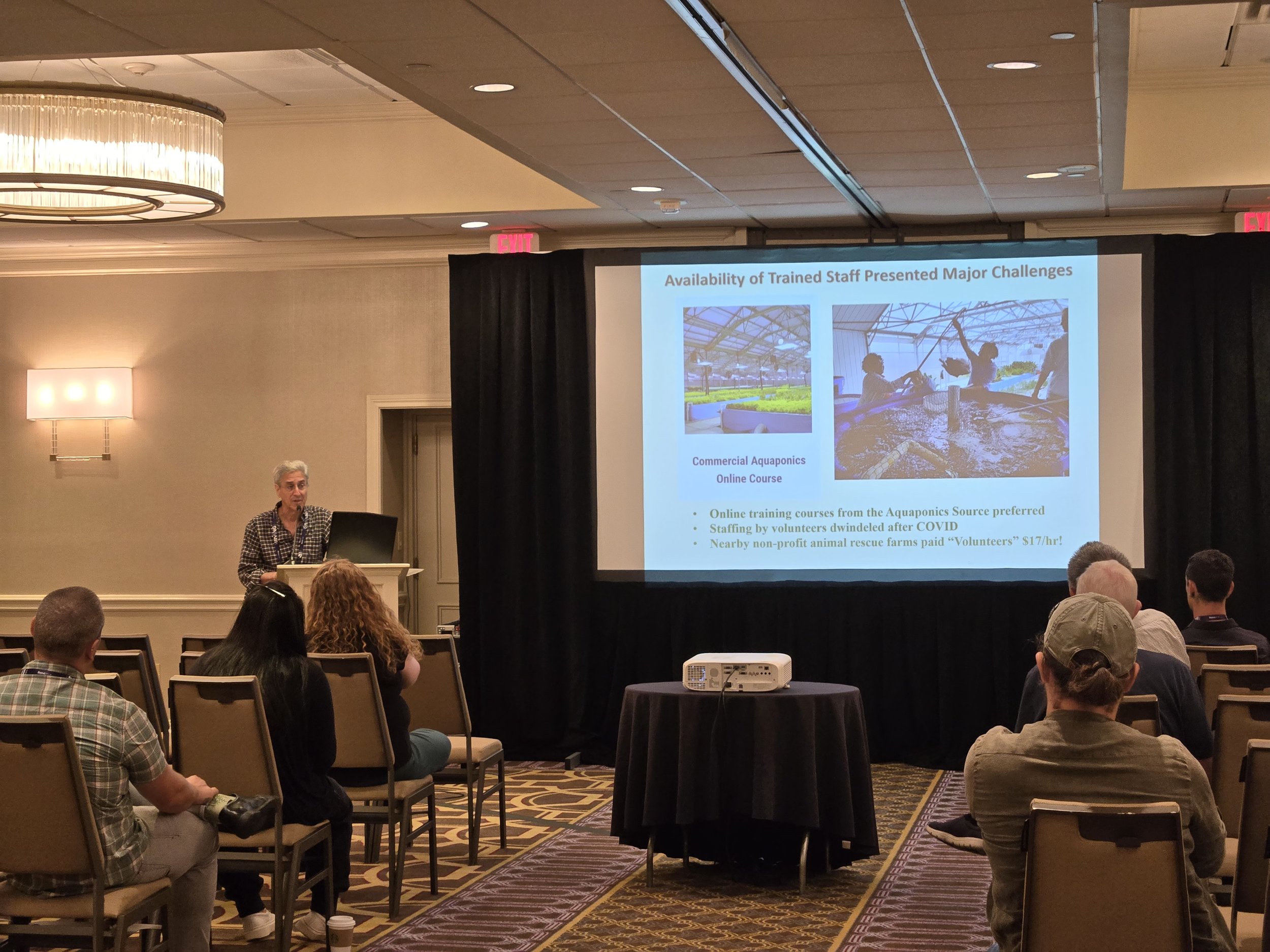
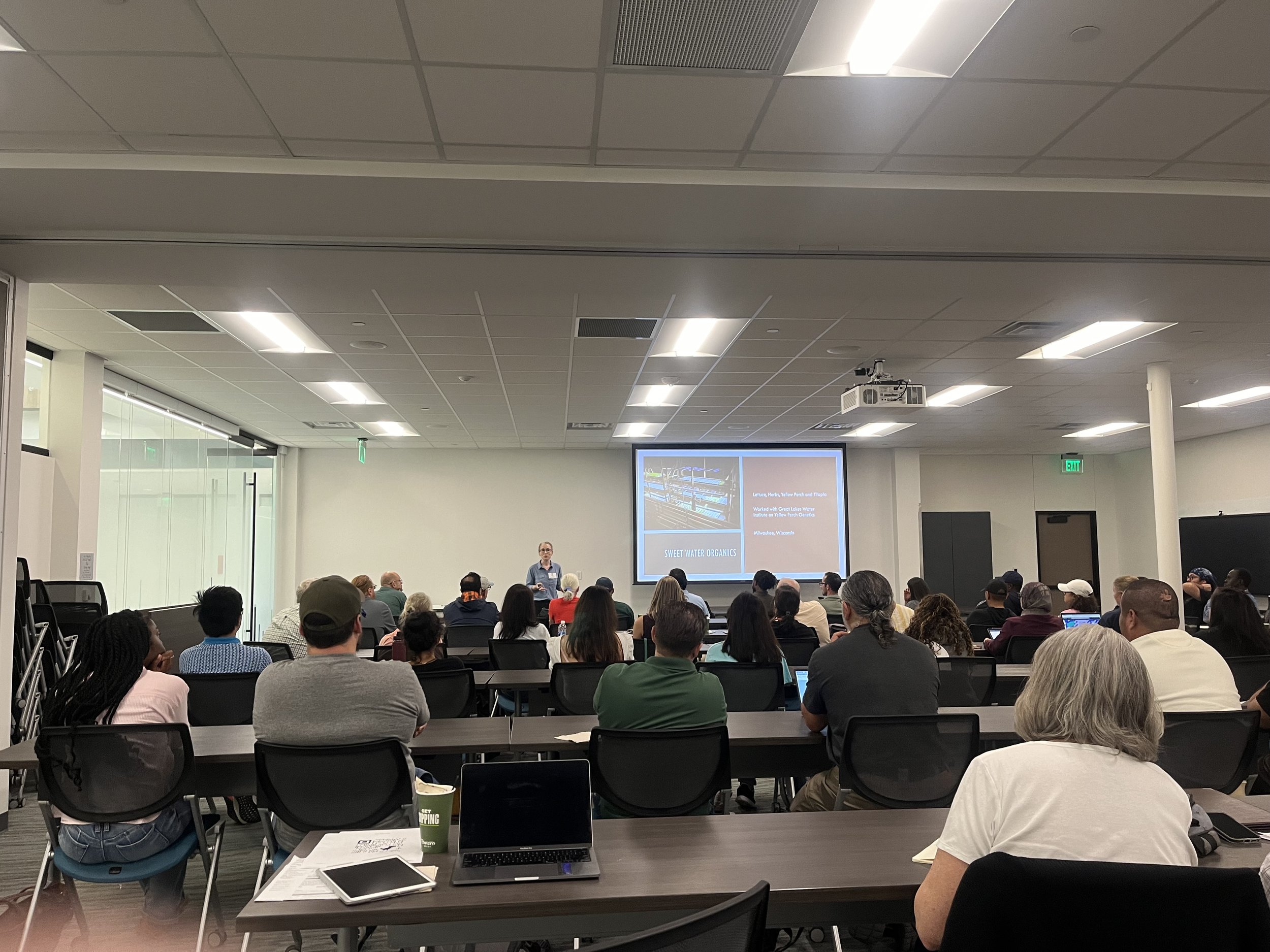
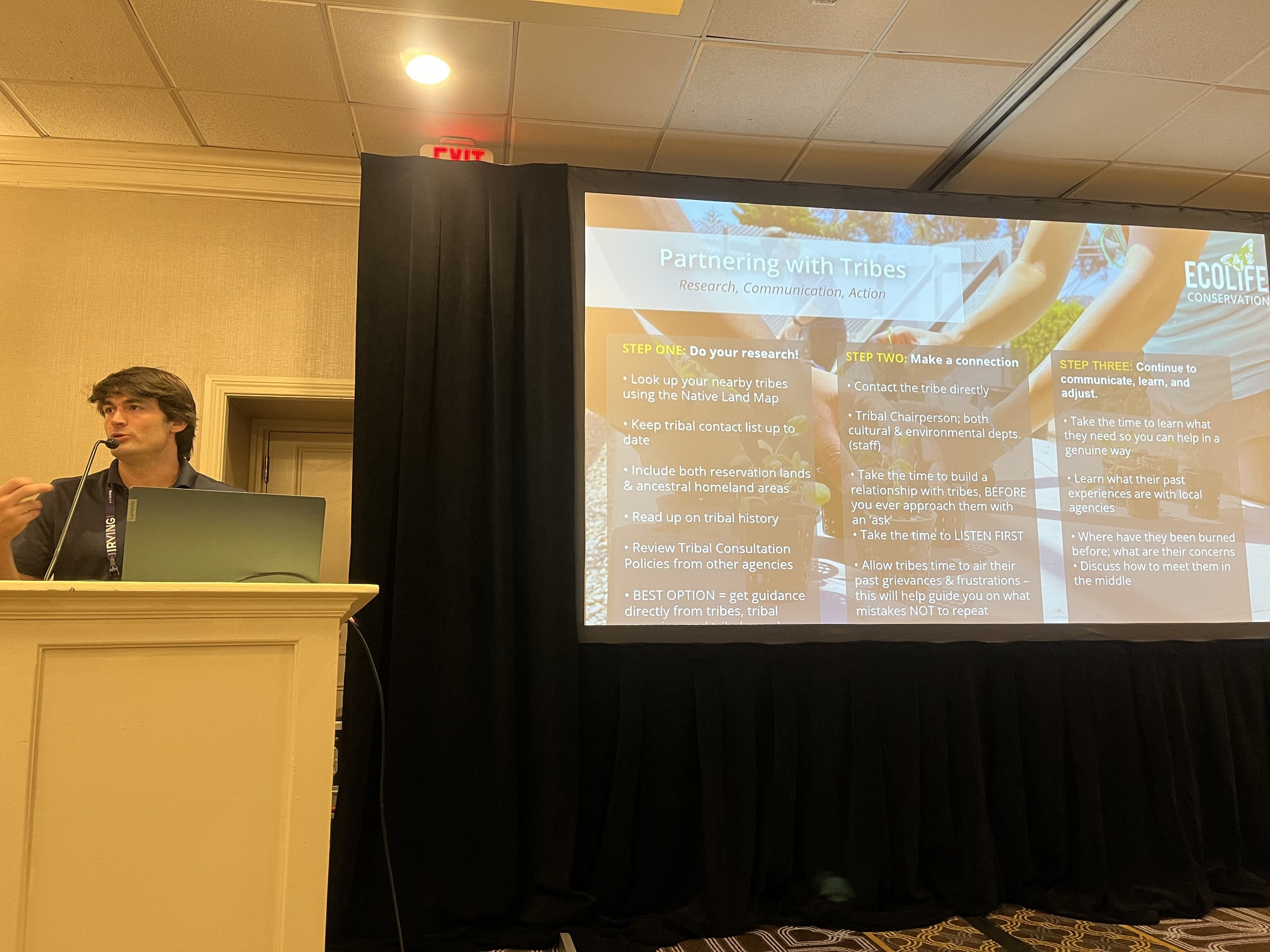
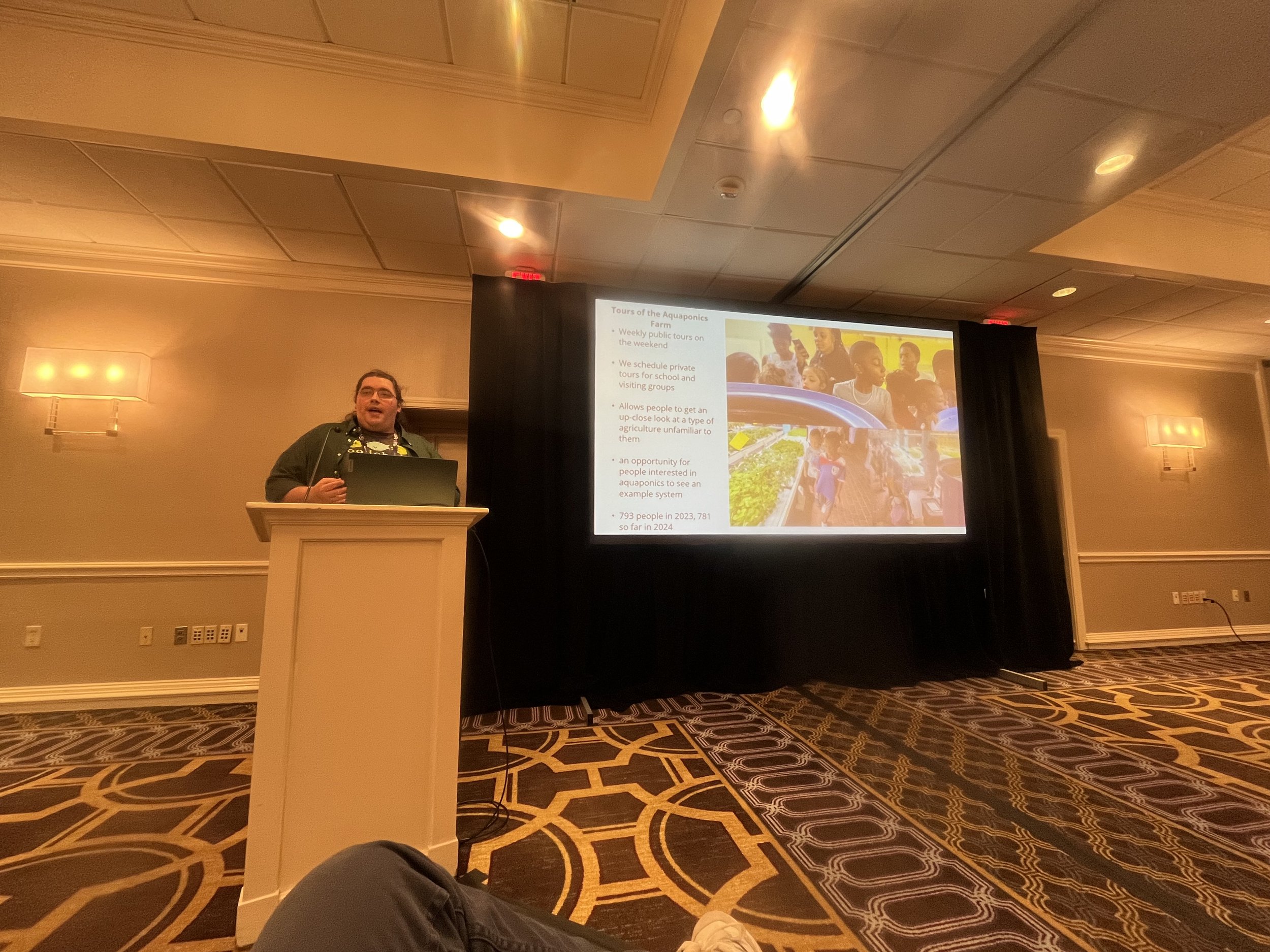
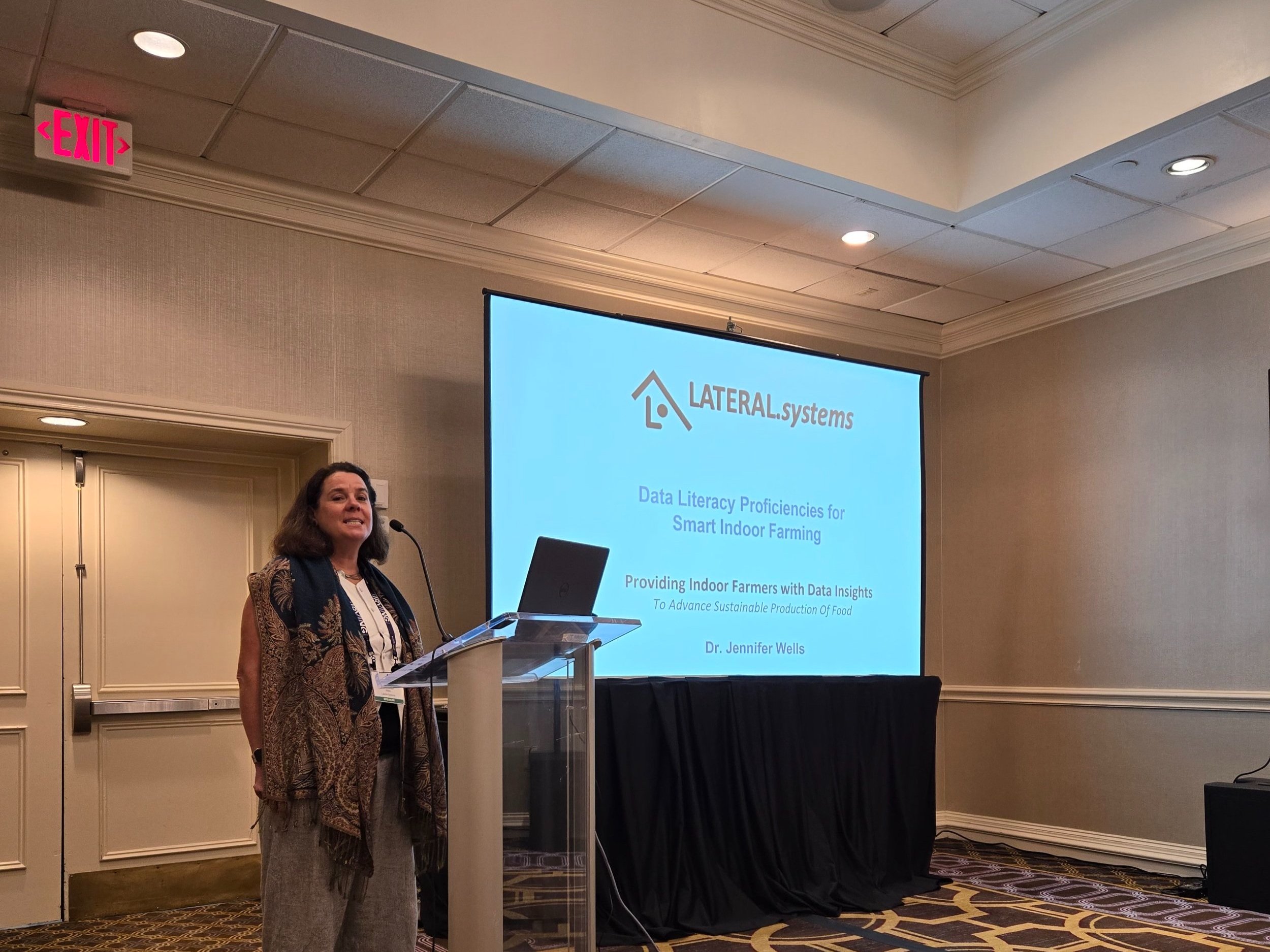
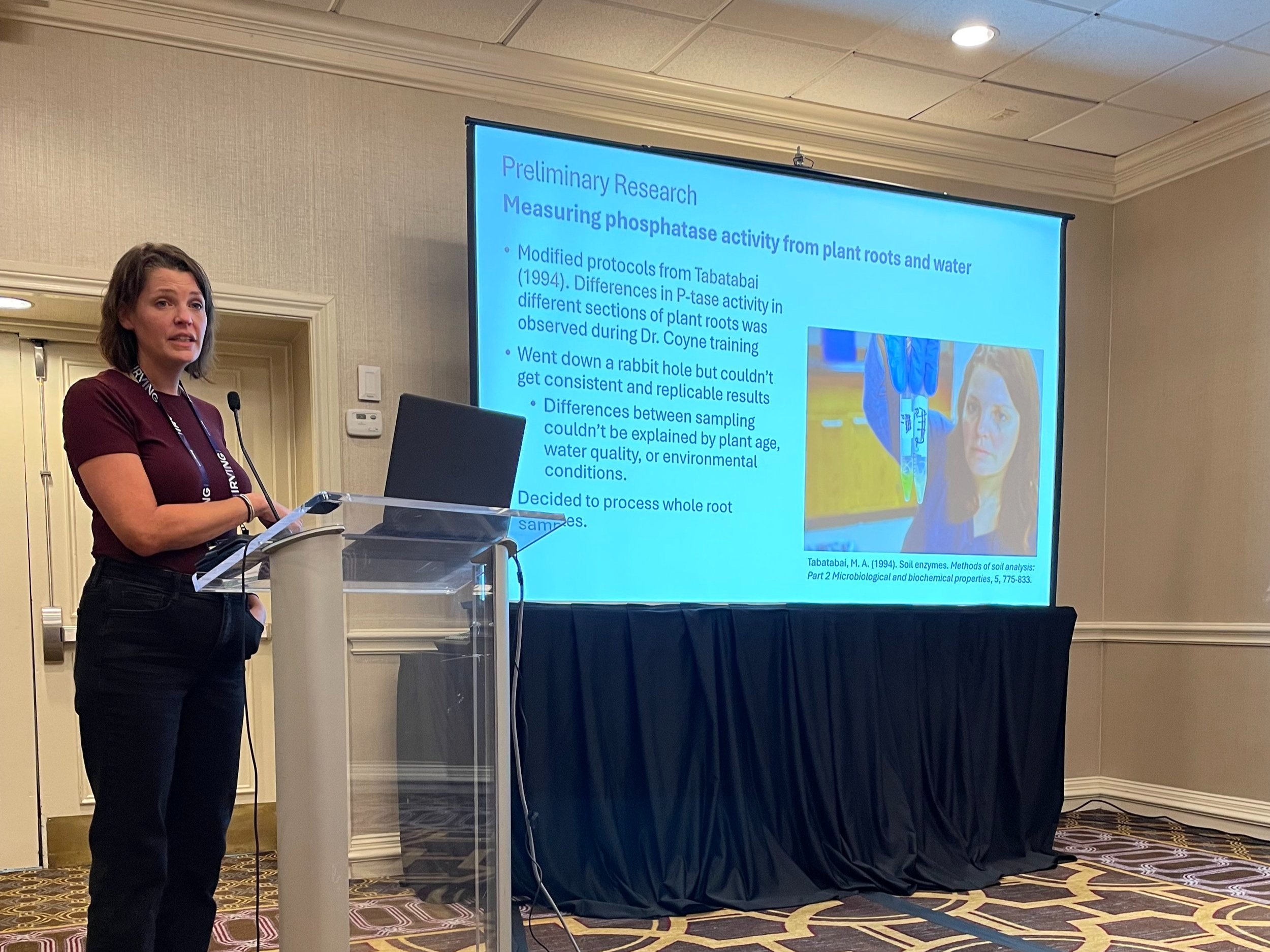
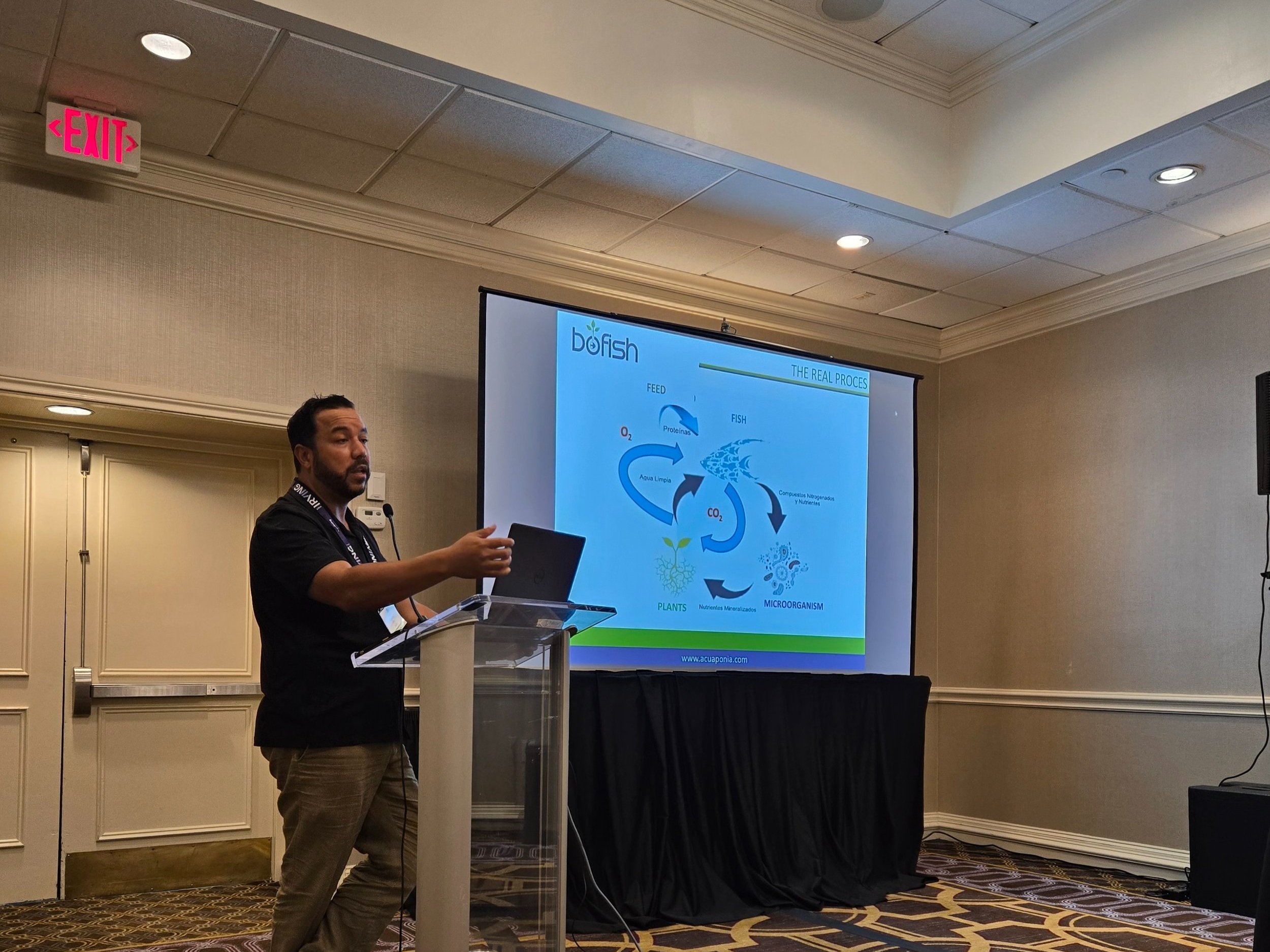
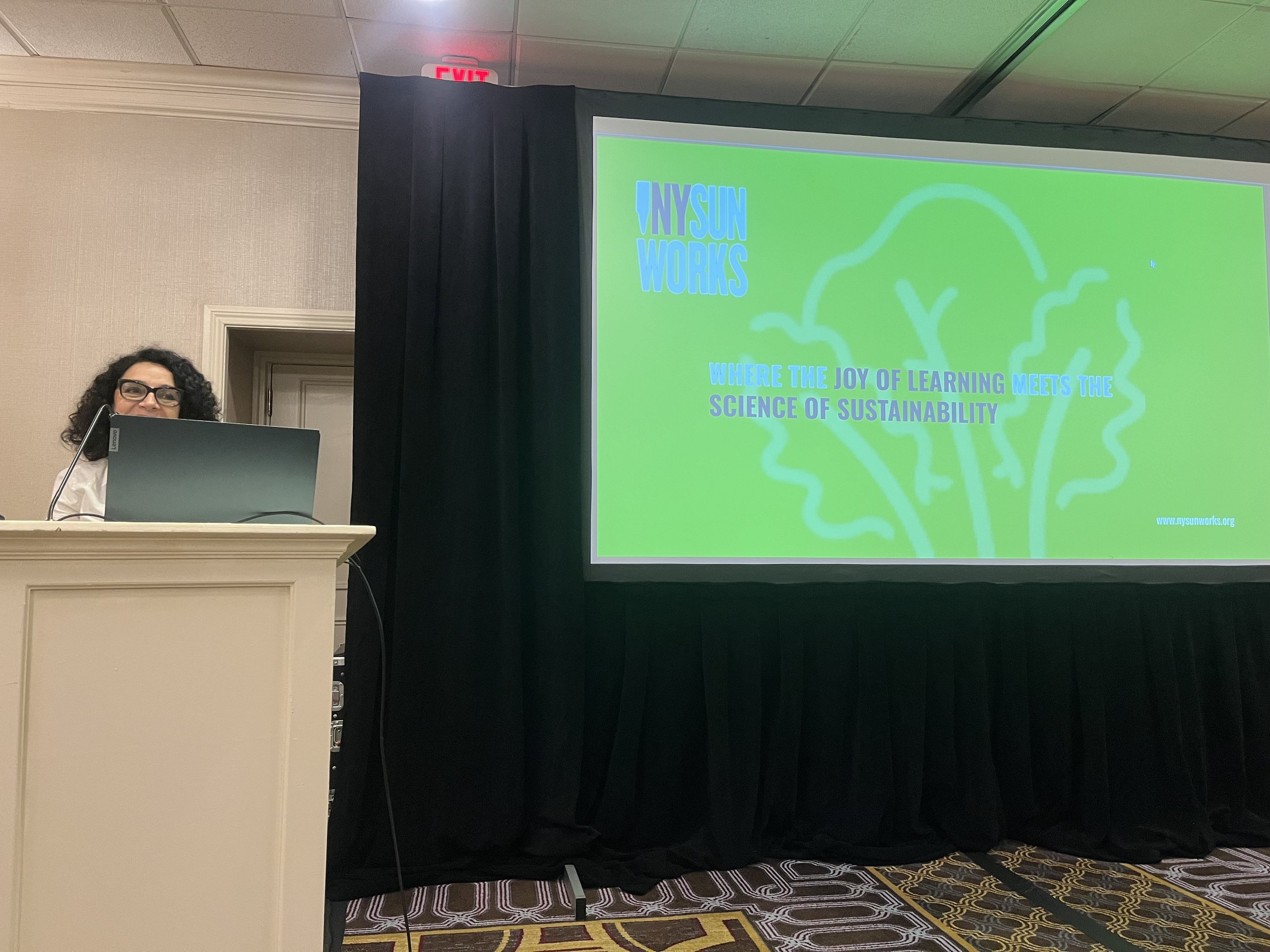
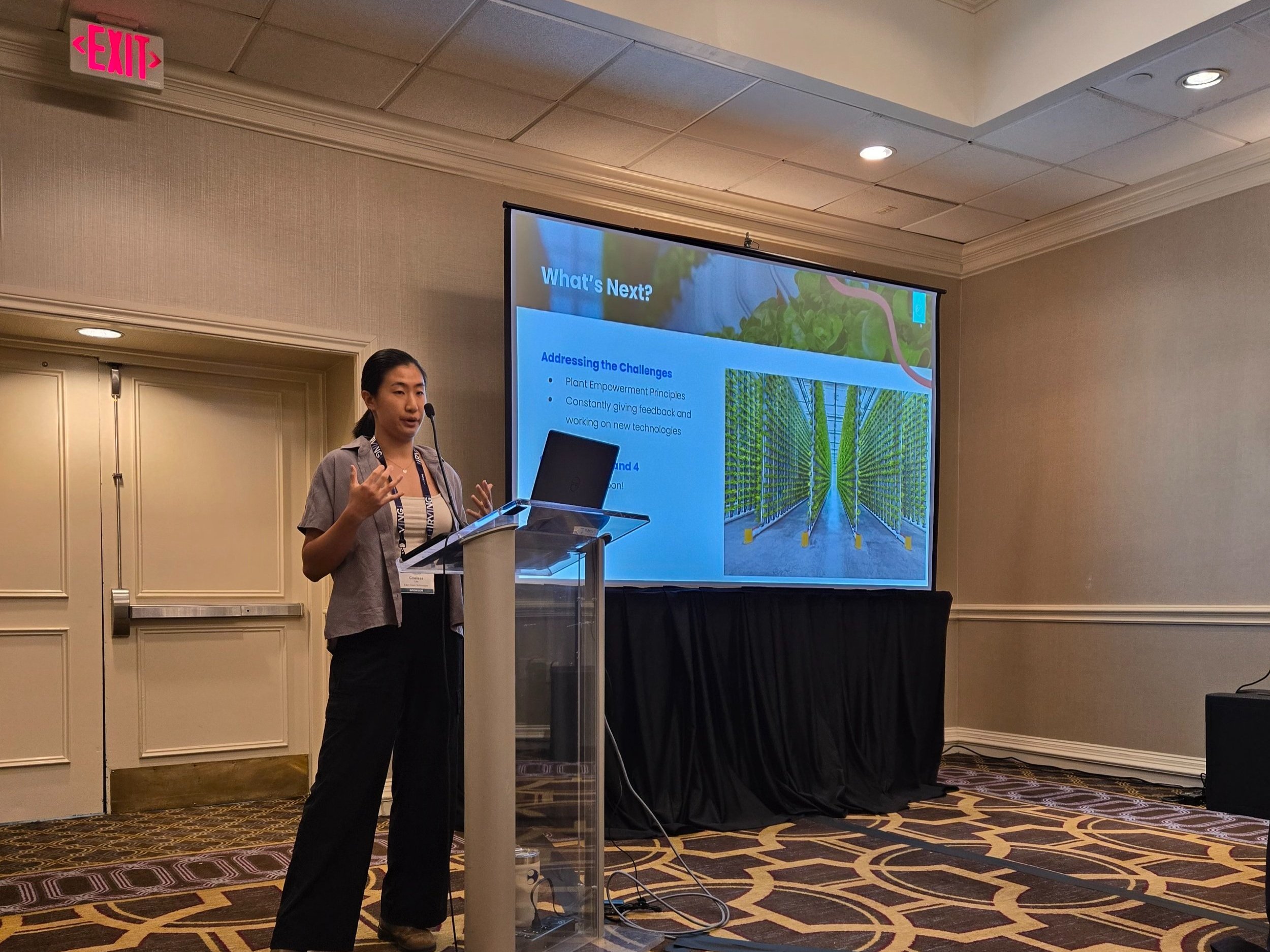
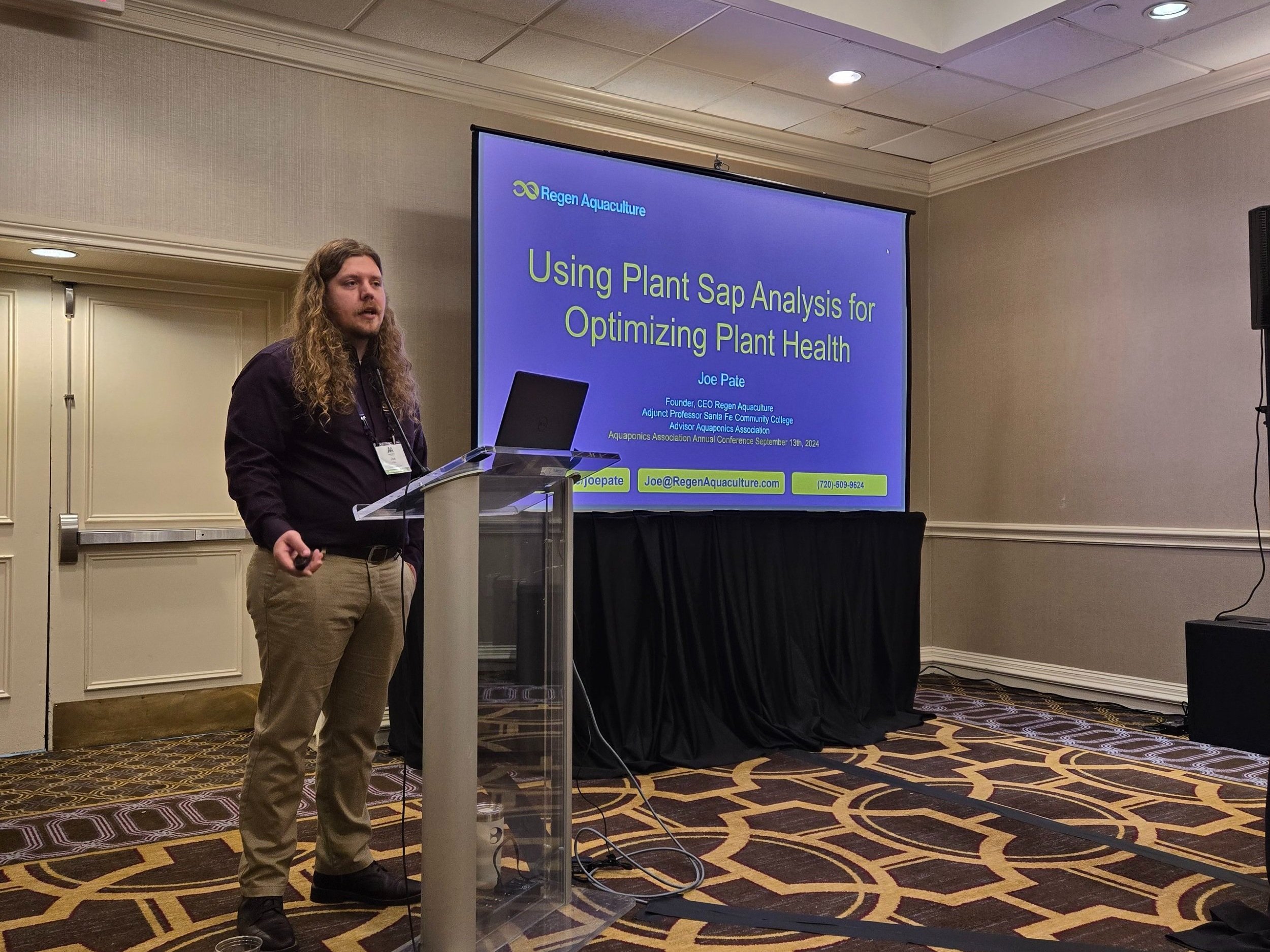
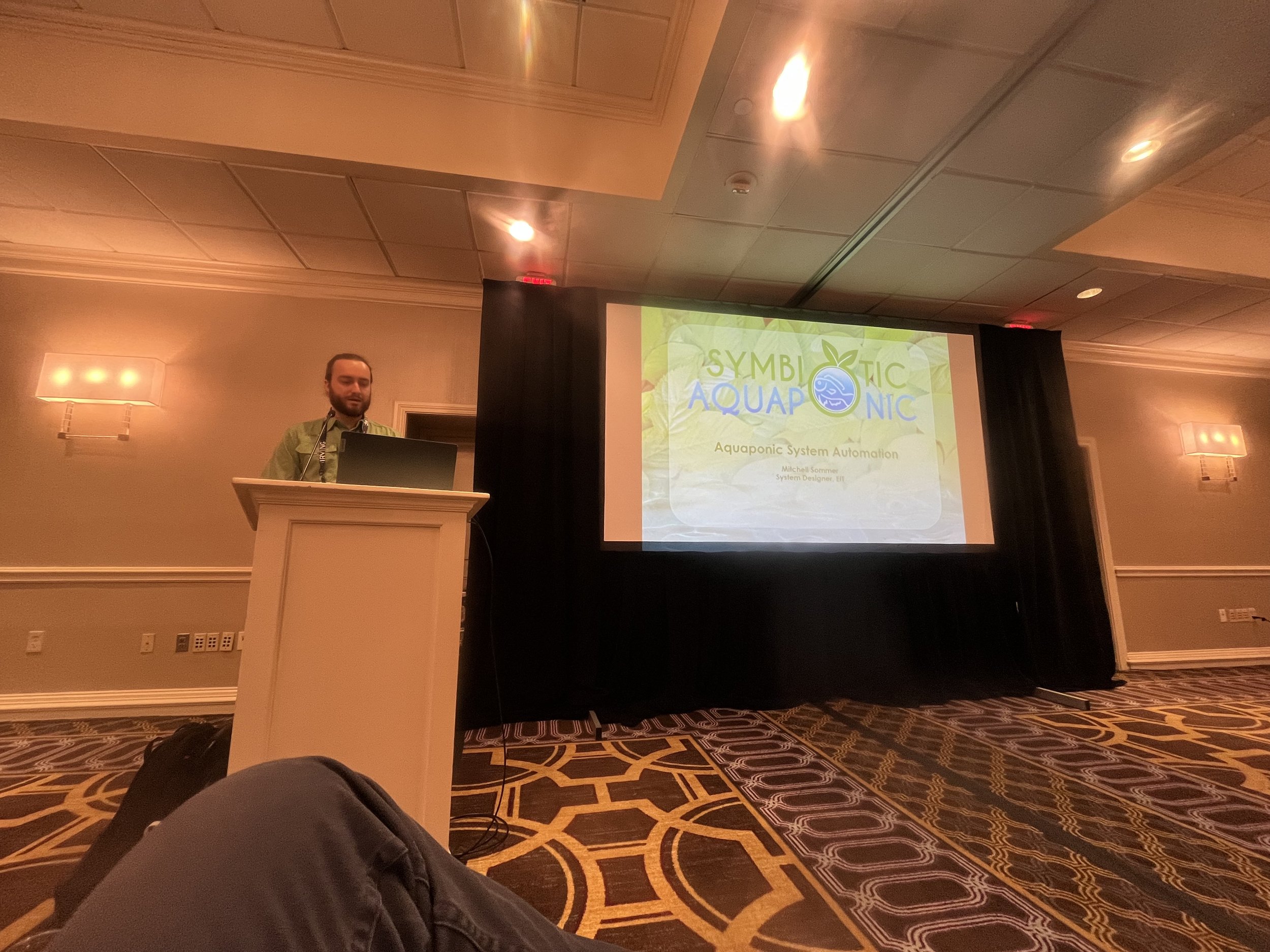
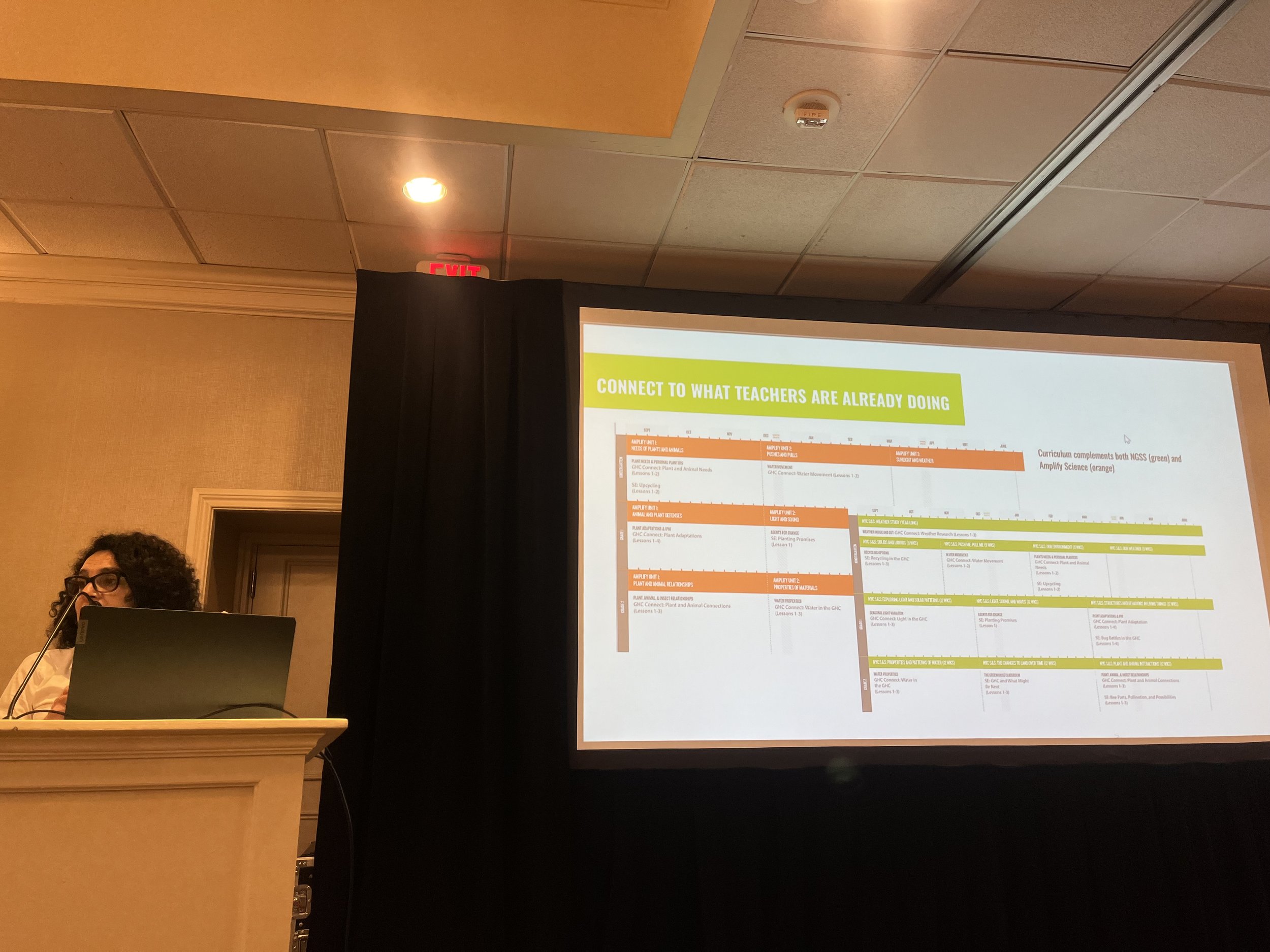
Attendees were exposed to several skills during the (2) tours of local commercial farms during the conference. The tours included 1) Eden Green, a commercial vertical hydroponics greenhouse operation (Pre-Conference Tour), and 2) Timberview Farmstead, a bio-integrated farm using commercial aquaponic greenhouses as a centerpiece for agritourism (Conference Tour). During the Eden Green Tour, attendees were exposed to several novel techniques/skills for plant propagation, plant harvesting, and marketing. Additionally, Eden Green demonstrated their Intellectual Property (IP) system design, which integrates vertical systems and environmental control systems within greenhouses. During the tour of Timberview Farmstead, attendees were shown skills involving Integrated Pest Management (IPM), farm waste management, and fish handling and processing. Additionally, attendees gained exposure from Timberview’s unique agritourism model, which integrates commercial aquaponics with several other livestock and outdoor farming operations to achieve profitability. Timberview uses this bio-integrated farm for hosting events, youth education and demonstration, community outreach, as well as product sales.
3) Historical sponsorship support and solid attendance for the 13th Annual Aquaponics Conference
Overall, we had 237 attendees and 18 sponsors (below) during the 2024 conference. While these were slightly lower than what we had set our goals towards (300; 20), we are still satisfied with the turnout as our target levels were above average from years past. For instance 18 sponsors is the highest number of sponsors supporting the conference since its initiation. These sponsors were and continue to be invaluable to the success of our conference and to support the USDA funding through in-kind matches.
At the end of our conference we distributed a post-conference survey seeking to gain insights from our attendees about ways to improve the conference programming, if they felt they gained knowledge from the conference program (special sessions, general presentations, as well as tours), and if the conference will create an action response for the attendee (i.e. vendor gained a new sale; producer will change harvesting methods based on new data from presentation, etc.). Of the 237 attendees, 84 submitted a survey response. In general, there was a positive response for the conference with 48 of the respondents rated the conference 5/5 in. This indicated significant value gained, reflecting strong content and networking opportunities. 27 of the participants rating the conference 4/5, reflecting quality content and networking, with still a value gained from the conference. 5 participants rated the conference 3/5 in reflecting a neutral feeling about the value gained from the conference and showing a need for improvement in the programming and content. The remaining 4 participants rated the conference below 3/5 reflecting a negative feeling about the programming and value gained from it. Results from the survey showed strong positive feedback from attendees with 53 respondents providing ways to improve the conference, indicating buy-in and appreciation to create an overall better conference experience. Participants also indicated a strong interest in the pre-conference workshop programming and more beginner level content. 2/3 of our respondents indicated they would be returning to the conference with the remaining 1/3 unsure with reasoning such as location, unknown schedule/content, or funding as being a potential roadblock for returning.
14th Annual Aquaponics Conference and beyond!
We are excited to continue pursuing more funding to accomplish and enhance our 14th Annual Aquaponics Conference and beyond. Stay tuned into our conference website to recieve alerts for the 2025 Aquaponics Conference and potential funding support (Conference Website Link)
The work and support that the USDA has provided through their grant opportunities is not only invaluable to our organization but also to a wide range of stakeholders involved in aquaponics! Whether it be the USDA’s Natural Resource Conservation Service (NRCS), NIFA, Farm Service Agency (FSA), Office of Urban Agriculture and Innovative Production (UAIP), or others, it’s vital that stakeholders utilize their programs, services, and expertise to continue growing the aquaponics industry! We cannot emphasize enough how important it is to be aware and connected with the USDA and other funding agencies! Our organization can help you with assessing needs, adding value to projects, as well as general information/connection for aquaponic projects! Do not hesitate to reach out (Coordinator@aquaponicsassociation,org) and connect or support our organization through your membership! Keep Aquaponicing!







